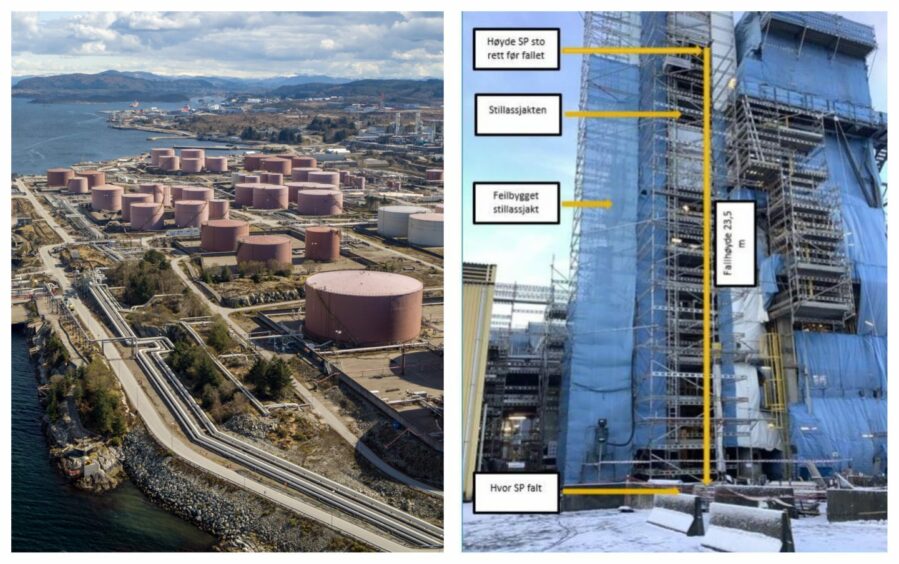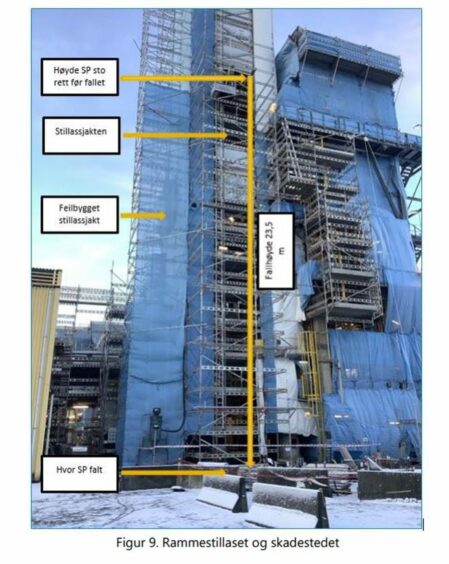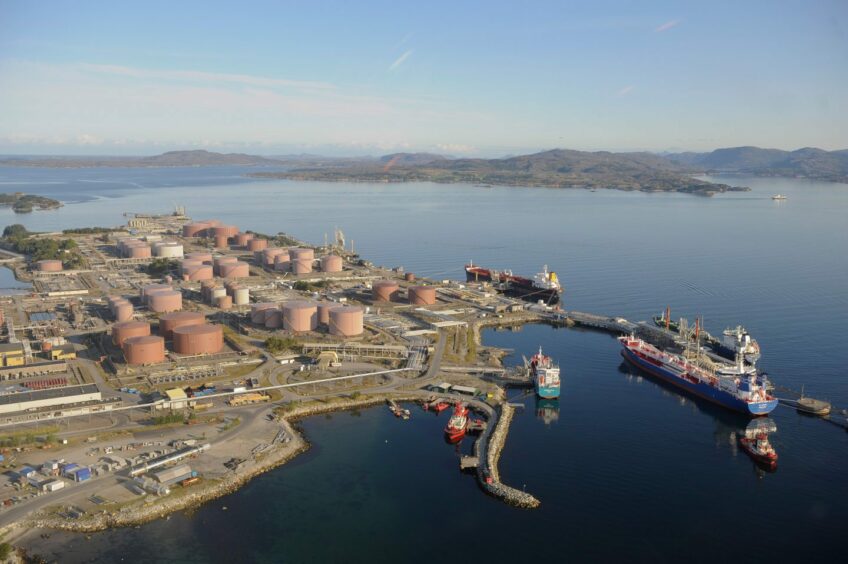
Norwegian safety regulators have ordered Equinor and Beerenberg Services to improve after a worker suffered “serious injuries” from a severe fall at the Mongstad refinery in January.
The Petroleum Safety Authority issued a report on Tuesday following an investigation of the incident, in which a contractor fell 23.5 metres onto a concrete floor during scaffolding installation.
The report notes the worker suffered “serious injuries”, though the PSA said that under “slightly different circumstances” the fall would have likely been fatal.
The investigation identified “serious breaches of the regulations”, resulting in an order issued to Equinor (OSE:EQNR) and to Norwegian oilfield services firm Beerenberg.
Following the incident Beerenberg was ordered on 27 January 2023 to halt all installation, disassembly and alteration of the scaffolding at Mongstad, to aid the investigation.
According to the PSA, the direct cause of the incident was that a hook on the ledger to which the injured party had attached his fall-arrest safety harness had come loose at one end of the scaffolding.
The man lost his balance, causing him to fall backwards so that the hook at the other end of the ledger holding his harness bent and detached from the standard.
An Equinor spokesperson told Energy Voice: “We take this work accident very seriously, such incidents should not occur.
“We will use this incident to strengthen our understanding of the risks associated with working at height. It is important to us that those who work at our facilities can work safely. Our own investigation report was finished in May and was shared with the PSA.
“We will learn from the incident and will follow up orders and deviations from the PSA.”
Workload and stress contributing factors
The PSA found that a poor understanding of the complexity of the job had led to “inadequate planning, organisation and execution” of scaffolding activity. It identified this to be a contributory cause of the incident, along with the format of the services contract, a high workload and stress.
On Equinor’s part, the PSA found inadequate risk assessment, follow-up, and a failure to ensure conformity between its own emergency plans and response and those of other participants. Notably, it also found the site’s emergency response plan did not cover a rescue at height.
Improvement was also ordered to address inadequate manning in the health and safety service and inadequate emergency drills and training involving the contractor.
Beerenberg was found to have undertaken inadequate risk assessment and organisation of work, and a lack of expertise and communication.
The firm did not adequately plan for self-rescue, fall rescue and rescue at a height and were not described in its emergency response plan, the PSA found.
It also identified breaches relating to the management of the “psychosocial working environment.”
Equinor was subject to two orders as a result of the investigation; one requiring it to hold a systematic review of its risk assessment of work at a height and apply lessons learnt from similar incidents, and a further order for a review of management systems for contractors carrying out work at a height to ensure they comply with regulations and Equinor’s own policies.
The deadline for meeting the order is 1 October 2023, though both firms are advised to respond to the PSA’s letter by late August.
In a statement to Energy Voice, Beerenberg said: “Safe and secure working conditions for our employees is our primary focus. The serious work accident on January 18th therefore hit us extra hard, and has affected us all.
“We will learn from the incident and do what we can to prevent such accidents from happening again.
“We will follow up and respond to the PSA in regards to the deviations.”
It’s the second major safety probe at the site in a year, after the PSA also found deficiencies in the design and maintenance of the refinery earlier this year.
The regulator said these could have contributed to a blaze at the facility, around 30 miles north of Bergen, last July.
Nobody was injured as a result of the blaze, but it did lead to a shutdown of several process plants for almost three weeks.
 © Supplied by PSA Norway
© Supplied by PSA Norway © Equinor/Oyvind Hagen
© Equinor/Oyvind Hagen